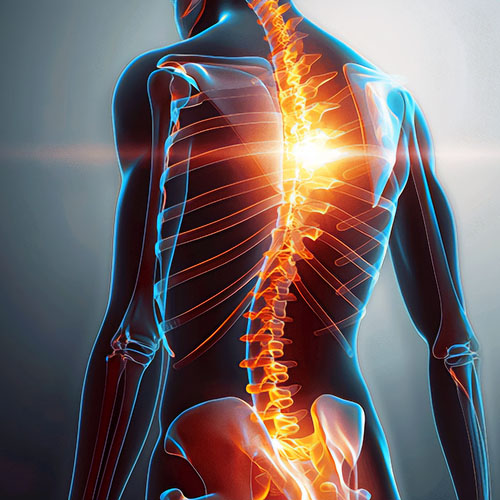“Across the nation, a tragic scenario is being played out by the thousands of families that are victims of very peculiar new age therapies.”
Therapy: Look Back in Anger
[Therapist and patient names in some cases have been changed to protect the identity of the parties involved.]
Bill Miller leads me down to the basement of his tidy New Jersey home. The walls are blanketed with photos of his three daughters — as infants, as little girls, as teenagers, as young women. Ten, 15 years ago, when they were still living at home, this had been their rec room. That’s what Maher calls it — the rec room. That’s the term suburban parents used to use. Back then. In happier days.
“I want you to listen to this,” Maher says, popping a cassette into the answering machine. A woman’s voice, bitter and angry, emerges from the speaker. It belongs to Maher’s 38-year-old middle daughter, “Ellen.” “You and Daddy have made me feel humiliated, ashamed,” she says. This is a message — a denunciation, really — she left for her mother more than a year ago. “So stop putting the blame on me. I’m very angry. I’m very hurt. And you’ve never supported me. Okay? You’ve given me money. All you’ve ever given me is money. Money, anger, and rage. All your anger, all your blame, all your rage. Okay? Leave me alone. Just leave me alone.”
Three years ago, Ellen accused her father of raping her and her sisters when they were children. Maher denied the charge. So did his wife, “Sue.” So did both of their other daughters. Ellen herself admitted that she didn’t remember the incidents until more than two decades after the fact. According to the controversial theory of repressed memory, the incest had been so traumatic that she literally forgot about it for 25 years. But after months of intensive therapy, she became convinced that she’d been molested by her father in this very basement — while her mother watched.
“For every article you send me about false cases of sexual abuse, there are five million more about real cases,” Ellen is saying, relentless, remorseless. “This is a real case. You know it. You knew it long before I did. You’re the enabler. You’re the enabler. You didn’t protect your children. You didn’t protect me. Even animals protect their children.”
Maher’s upper lip is stretched tautly across his teeth, giving him a fierce expression that’s half-grin, half-grimace. He’s studying me intently as I listen. I feel awkward under his scrutiny. Am I supposed to look horrified? Compassionate? What? But as I listen to the venom, so corrosive I can almost feel my flesh sizzle, I fixate on a single question: How can he bear to listen to this?
His wife can’t. Once a can-do mother with a sunny disposition, she now has the tentative, almost furtive air of a woman living under a perpetual cloud. Before going upstairs, she points to a photograph of Ellen’s son, the grandchild she hasn’t been permitted to see for three years. “We used to have a picture of him here with my daughter and her husband,” she says, her voice quavering. “But I took it down. I just couldn’t look at it anymore.”
She dabs at her eyes and steadies herself. “I have this fantasy,” she says. “Eventually, my grandson will get his driver’s license. One day I’ll open the door and he’ll be there.” She laughs bitterly. “But it won’t happen. He’s been brainwashed. His mind has been poisoned. So it’s not just that we have a daughter who is sick and who continues to be sick. It’s an entire family going down the drain.”
Across the nation, this tragic scenario is being played out by thousands of families much like the Mahers. No doubt, some of the parents are guilty of incest. But the 13,000 families who’ve contacted the False Memory Syndrome Foundation in Philadelphia claim that they’re victims of peculiar New Age therapies ranging from hypnosis to past-life regression, analyzing body memories to conversing with the inner child. Critics argue that memories recovered through these scientifically dubious techniques aren’t recollections at all, but confabulations or pseudo-memories — hopelessly tangled composites of fact and fiction. Most of the so called memories involve years of incest. Others are tales of satanic rituals ghoulish enough to make Rosemary’s Baby look like Charlotte’s Web. Occasionally, some patients even remember being abducted by aliens from outer space.
“If you want me to even consider having a relationship with you again,” Ellen is saying now, her tone shrill and demanding, “then you’d better get into therapy. Not for me but for you, for yourself, for your anger and rage and enabling and inability to protect me as a child and even to protect me now as an adult. You protect him. You’ve been protecting him all your life. If we are going to have any kind of a relationship, you need to start acting like a mother to me and the rest of your children instead of like a mother to him.”
The tape spools off into silence. Upstairs, Maher’s other daughters are yelling at him to come to dinner, but he continues to stare at me with that ghastly, unreadable expression. “My own daughter,” he says softly, shaking his head. In that instant, I finally comprehend the strange look on his face. It’s the look of a man who keeps picking at a scab, and the worse it bleeds, the deeper he picks.
Part of me wants to tell him to leave it alone, to let the wound heal, but I don’t. In my heart, I know it won’t. For Maher and the other parents who say they’ve been falsely accused of sexual abuse on the basis of repressed memories, there’s no going back. All they can do now is remember how it used to be. Back then. In happier days.
If you were to take the son of a preacher and turn him into a cop, you’d probably end up with somebody like “David Kirk.” A big man with big, strong hands, he’s authoritative, trustworthy, honest, fair, and eager to please.
But beneath his facade of professional competence, Kirk has always been plagued by inner demons . Over the years there have been several divorces, failed relationships, and, at times, an almost paralyzing form of depression. By 1989 he was in therapy. And then, at the age of 45, immediately after a session during which he’d told his therapist he’d never been abused as a child, his entire world was shattered.
“Belief is the only proof you need, and in many cases, that’s all the proof there is.”
“I remembered my dad performing oral sex on me in a motel bathroom,” he recalls, fiddling with his watchband. “I was probably four years old at the time. I saw the scene exactly, and I felt the physical sensations. I felt his arm on this shoulder. I saw his face go down here. I saw the underside of the sink I was looking up at. I felt that he had my entire penis and testicles in his mouth. I even got an erection.”
Kirk and I are sitting at a picnic table overlooking a sleepy marina on the Pacific. In the distance, a 35-footer glides out to sea while squawking sea gulls wheel overhead. Kirk is smoking low-tar cigarettes in deep, rang drags, cupping the cigarette so it’s hidden in his hand and the smoke curls up his wrist. As he speaks, his sonorous voice grows more hesitant and diffident.
“I think I performed oral sex on my dad when I was still in the crib,” he says. “I have a fragmentary memory of his penis and the bars of the crib.” He remembers having anal intercourse with his mother, with his father directing, after his older brother demonstrated how. He also remembers being raped by friends of his parents. Altogether, he’s come up with 11 adult perpetrators. And there may be more.
“Just the other night, I had a new flashback,” Kirk says. “It was like I got this feeling and taste in my mouth. And now I can go, Oh yeah, I had a penis in my mouth, and that’s the taste of semen.” Behind us, two kids are hacking away on a tennis court, and the contrast between their mundane banter and Kirk’s horror story is wrenching. “Typically,” he continues, almost clinically, “something will trigger my memory, and then I’ll get bits and pieces. They seem to come back at the level at which I’m able to handle them. Sometimes it can take months or years for me to string the pieces together.”
Two summers ago, after attending an incest survivors’ workshop, he made a dramatic breakthrough. “When I got home that night,” he says, “I was aware of having a ten year old [in my mind] with me. Me at ten, right there with adult David. In the background, internally, I could see three more kids with their backs to me, crying. A few days later, I said to myself, ‘Okay, ten-year-old David, I’d like you to just be here with me, and maybe we can get the other three to come over.’ The ten year old yelled at them, ‘Get over here! He won’t hurt you.’ So they came over.”
Kirk has identified 16 “alters,” as these alter-egos are known in the jargon of the burgeoning multiple-personality disorder movement. They include boys and girls and men and women, ranging in age from an infant to a 38-year-old nanny, each with their own name and personality. “I developed alters along the way,” he says. “Splitting [into different alters] was a coping skill I learned to deal with the trauma.”
Kirk smiles crookedly. “If I were in your situation, I’d consider them hallucinations,” he concedes. “I’d think, This person I’m talking to is crazy. And I have tons of fear about being considered insane.” It’s a profound admission. Yet, paradoxically, it lends weight and credibility to a story I frankly have a hard time believing. There’s no hard corroborating evidence. But then, it’s 40 years after the fact. Kirk himself is earnest and believable. He seems no crazier than any of my friends, or me, for that matter. When you get right down to it, why would he lie about something like this?
Kirk grinds out another cigarette and glances at a computer printout listing the flashbacks he’s accumulated over the years — rape, sodomy, oral copulation, S&M rituals, all reduced to a life-less field of black and white. “To this day I still say to myself, Is there any chance I’m making all this up?” He laughs easily, the laugh of a man at peace with himself. “And yet, all the memories and flashbacks make sense. They either correspond to other memories or to reactions I’ve had in my adult life. They’re so real. Every few weeks I’ll go, Boy, this is weird. Am I making any of it up? And the answer is no.”
Until very recently, child abuse in general and incest in particular had been two of the dirty little secrets of Western civilization. It wasn’t until 1962 — only yesterday in historical terms — that the first academic monograph on battered children was published. Today, some studies suggest that one out of every four girls and one of every seven boys will be sexually abused by the time they turn 18. Although many experts call these figures unrealistically high, even the most conservative surveys indicate that tens, if not hundreds, of thousands of children are molested each year. In nearly half these cases, even more regrettably, they’re abused by members of their own family.
Adult survivors of incest started to emerge from the closet in significant numbers in the seventies. As they did, therapists began to notice a strange, recurring phenomenon: Women with no history of sexual abuse were coming to their offices, convinced that they’d been molested as children. Many of them could offer no evidence more substantial than the disquieting sense that “something” had happened. And while others remembered elaborate images replete with smells and tastes, more often than not the flashbacks were fragmentary and dreamlike.
Dee Spring, an Oxnard, California, therapist who was running the state’s largest rape-crisis center at the time, was among the first clinicians to grapple with these symptoms. After examining hundreds of women with similar histories, she concluded that her patients were repressing memories of childhood sexual abuse. She theorized that they’d managed to completely forget about the incidents because they were “in denial” — a mechanism subconsciously employed to mitigate the effect of the trauma. “I said I thought Freud was right about repression, and I nearly got run out of town,” she says, laughing ruefully.
Actually, these new definitions of repression and denial were subtly, though fundamentally, different than the original ones. In the classical Freudian sense, a drug addict denies, or hides from his conscious mind, his inability to function normally; he doesn’t deny the indisputable fact that he takes drugs. But now repression was reconceived as a curtain that could be lowered (and raised, if you knew the trick) not merely on a single traumatic event, but on entire chunks of life — five, ten, even 15 years of repeated abuse. Although there was no convincing scientific support for this thesis, it was a powerful notion, and it was powerfully seductive.
It didn’t take long for this updated concept of repressed memory to galvanize the therapeutic community. All too often, therapy was an open-ended proposition with a finite beginning but no recognizable end. Here was a theory that gave well-meaning clinicians a smoking gun to seek, a holy grail to serve as a beacon as they navigated through the confusing mists of the human mind. Better still, it also seemed to carry with it the imprimatur of the First Therapist, Herr Doktor Freud himself.
“One therapist actually encouraged her patient to fabricate false memories of abuse.”
These points alone might have been persuasive enough to bring repressed memory to prominence, but there was more. Politically, the theory was seized upon by mainstream feminists who were eager to empower women and, to an even greater degree, radical feminists who viewed rape as the inevitable product (and indispensable tool) of a patriarchal society. It also fit neatly into the emerging recovery movement, with its fondness for pseudoscientific self-help nostrums.
But despite growing support, the recovered-memory movement didn’t coalesce — and infiltrate the popular consciousness — until The Courage to Heal was published in 1988. With page after page of prescriptions and proscriptions, plus hundreds of compelling anecdotes from adult survivors of sexual abuse, the book was an instant self-help smash. And while it’s pooh-poohed by many professionals — neither of its authors, Ellen Bass and Laura Davis, has academic degrees in the field of psychology — The Courage to Heal nevertheless has become the bible of the repressed-memory movement.
The book’s great strength — and it is dramatic and inspirational — is that it shows survivors they’re not alone. Its worst flaw, critics charge, is a gross oversimplification that encourages people who are merely unhappy or dissatisfied to blame their problems on sexual traumas that may or may not have occurred. The symptoms of abuse cited by Bass and Davis include promiscuity, frigidity, depression, compulsive lying, workaholism, headaches, self-mutilation, deep religious convictions, and eating disorders, just to name a few. In short, they would almost certainly apply to anybody troubled enough to seek out a therapist in the first place.
The Courage to Heal is a therapeutic atlas in which all roads lead to childhood sexual abuse. “If you think you were abused and your life shows the symptoms, then you were,” Bass and Davis write. “If you don’t remember your abuse, you are not alone. Many women don’t have memories, and some never get memories. This doesn’t mean they weren’t abused.”
In other words, belief is the only proof you need. And in many cases, that’s all the proof there is.
Laura Pasley isn’t permitted to identify her therapist. That was one of the conditions of the $300, 000-plus out-of-court settlement she won from him last year. But she’s eager to talk about how he encouraged her to fabricate memories of childhood sexual abuse — abuse she now realizes never occurred. “One day I woke up and my daughter was 12 years old,” she says, “and I’d missed her formative years because I was wrapped up in a delusional state caused by my therapist.”
Her antagonist — identified in court records as Michael Moore — was a licensed professional counselor who specialized in treating women with eating disorders. (Pasley is now suing her psychiatrist as well.) Pasley certainly qualified. She used to regularly criss-cross Dallas, speeding from restaurant to restaurant, binging and purging 15 times a day. But what she didn’t realize was that Moore was a believer in repressed memories; according to the tenets of the movement, eating disorders are surefire signs of childhood sexual abuse. “We never even addressed my bulimia,” Pasley recalls. “He said that wasn’t my problem. He said it was just a symptom.”
Besides drugs and so-called rage therapy — encouraging patients to scream and hit objects to release their anger — Moore was fond of using hypnosis to unlock Pasley’s repressed memories. Hypnosis is a time-honored technique that continues to be used to block pain and alter behavior. But while some clinicians also hypnotize patients to reexamine their pasts, this practice is generally frowned upon by the medical community. In fact, in most states, testimony elicited by hypnosis is inadmissible in court.
Why? “Recollections obtained during hypnosis can involve confabulations and pseudo-memories, and not only fail to be more accurate, but actually appear to be less reliable than non-hypnotic recall,” the American Medical Association has found. “These pseudo-memories may be the result of hypnosis transforming the subject’s prior beliefs into thoughts or fantasies that they come to accept as memories. Furthermore, since hypnotized subjects tend to be more suggestible, subjects become more vulnerable to incorporating any cues given during hypnosis into their recollections.”
Pasley’s was a case in point. “My first flashback was of a baby being smothered by a three-year-old boy,” she says. “On my next visit, [Moore] asked me why I wouldn’t accept the fact that my brother had tried to kill me. He asked me over and over and over.” At first she resisted Moore. She was, after all, a down-to-earth, take-charge woman — a single parent and a civilian employee of the Dallas Police Department. But she was desperate for help, and she desperately wanted to believe in Moore. And there soon came a time when she was willing to believe in anything.
At Moore’s behest, Pasley entered group therapy. Every Monday night, she and nine other women gathered in a small, windowless room with bare walls. All of them traded stories and insights as Moore sat on one side of the circle. The atmosphere was confessional, and the confessions, once they started, were contagious.
Pasley soon “remembered” having foreign objects inserted into her body’s orifices (it turned out that she subconsciously lifted those memories from the TV movie Sybil), witnessing her grandfather commit a murder, and being gang-raped as part of an ordeal organized by her mother. But her memories seemed benign compared to the sensational tales of satanic ritual abuse that came to dominate the increasingly hysterical sessions. One of the other women later testified in court that she’d been impregnated on six occasions by her father, a Baptist minister. Five of the babies were aborted so the fetuses could be eaten, she said, while the sixth was brought to term and sacrificed.
Allegations of satanic ritual abuse have become so common that police casually refer to them.as S.R.A. cases. In most circles, they’re taken as seriously as UFO sightings. “There is little or no evidence for [allegations of] large-scale baby breeding, human sacrifice, and organized satanic conspiracies,” F.B.I. agent Kenneth V. Lanning concluded after nearly ten years of investigating these tales. “Now it is up to mental-health professionals, not law enforcement, to explain why victims are alleging things that don’t seem to have happened.”
In retrospect, Pasley admits that it all sounds ridiculous. In fact, she and eight of the other women have since recanted their “repressed memories.” But at the time, the dynamics of group therapy overwhelmed any lingering skepticism. “If you even intimated that you didn’t believe one of the memories, [Moore and his partner] were on you faster than stink on shit,” Pasley says. And if you didn’t have any memories, then you were said to be “in denial” — another phrase enshrined in the recovery movement’s hall of fame.
“The problem,” says Skip Simpson, the attorney who represented Pasley, “is that a lot of these people are not in touch with reality. A patient can come in and say, ‘A spaceship landed in my backyard last night. I walked up the gangplank, and there was Richard Nixon, naked, sitting on all fours, with a double-bladed knife in his mouth, and he says, “Wanna fuck?”’ And the therapist asks, ‘What happened next?’”
“I don’t have any skepticism about recovered memories,” Jane Alpert tells me. “The people who come in to see me are in so much pain that I have to believe them. Once you’ve worked with clients who’ve been through this, the idea that they’re lying seems ridiculous. I can’t see any motivation for anybody to say they’d recovered memories if they weren’t true.”
“Parts of me wants to tell him to leave it alone, to let the wound heal, but I don’t. for people like him, there’s no going back.”
We’re sitting in Alpert’s tiny office in the hip Los Angeles suburb of Santa Monica. The room would be claustrophobic if it weren’t for the comforting, roly-poly mass of the love seat that envelops me. Like the furnishings, Alpert is stylish and relaxed. She has a master’s degree and 13 years of experience as a licensed psychotherapist. For the past three and a half years, she’s specialized in repressed memories of childhood sexual abuse. “I was abused as a child,” she confides. “I find that most therapists specialize in what they’re going through in their own lives.” Many of the patients who come to see Alpert have already had dreams or flashbacks of abuse. The others have “read all the books,” as she puts it, and decided that they fit the adult-survivor profile. All they lack are any actual recollections of being abused. “My job is to get them to pull the memories out of themselves,” she explains. “There’s no magic technique. It’s just a matter of focusing them on their memories so that they’ll recognize them when they start coming up.”
When patients have a dream so frightening that it awakens them, she encourages them to write a story completing the scenario. In some cases, she advises clients to see a therapist who diagnoses so-called body memories, the idea being that a child who’s forced to perform fellatio, for example, may suffer otherwise inexplicable but chronic jaw pain as an adult.
She’s also a proponent of nondominant handwriting — writing out questions with your dominant hand and answering them with the nondominant hand. This, she says, frees up your inner child. I suppress a sigh. Inner child. Inner child. Inner child. It’s the mantra of one wing of the recovery movement.
“For somebody who isn’t familiar with the idea, it sounds kind of bizarre,” Alpert concedes gracefully. “But what I like to do is place you in a very relaxed state, have you imagine a safe place, and ask you to picture your inner child. Whatever that first flash is, that’s your inner child, and once you have an image, you can start to dialogue. You might say, ‘Hi. Is it okay if I talk to you? I’d really like to get to know you. I’d like to take better care of you.’ Sometimes the inner child will say, ‘Yes.’ And sometimes he’ll say, ‘Go to hell. I hate you. You’ve neglected me my whole life.’”
To my positivist ears, it sounds faintly ludicrous, if not patently farcical. Yet, I know from my research that Alpert isn’t a crackpot. In fact, she’s squarely in the mainstream of her profession. She doesn’t believe in hypnosis; in trance writing, or writing while you’re under hypnosis; in administering drugs spuriously billed as “truth serum”; in hydrotherapy, a.k.a. hot-tub therapy; in past-life regression; in healing crystals; in herbal teas; or in any of the myriad other fringe techniques masquerading as mental-health panaceas.
She’s obviously intelligent, articulate, well-meaning, and well-educated. But we’re both prisoners of contradictory perceptions. When I look at drug addicts and people with eating disorders, I see a host of potential causes — emotional, chemical, social, economic. Alpert and a growing number of her colleagues have a narrower vision.
“I personally believe that sexual abuse is the cause of all those problems,” she says. “I think our whole society is absolutely riddled with sexual abuse. It’s like a piece of wood that’s being eaten through by worms. The worms are the sexual abuse, and the wood is our society. And the whole thing is going to collapse.”
In the eyes of the repressed-memory faithful, the False Memory Syndrome Foundation is consigned to a place of dishonor deep in the bowels of hell. Created by and consisting mainly of alleged perpetrators, it’s derided as a shill for sexual abuse, a propaganda organ whose patina of scientific respectability is mere window dressing for its morally bankrupt core. In some circles, “F.M.S. Foundation” is uttered with the sort of disgust most people reserve for a Nazi or serial killer. No single person is reviled more thoroughly than the foundation’s principal founder, Pamela Freyd.
Sitting behind her desk, dwarfed by unread reports and unanswered correspondence, Freyd doesn’t look like much of an anti-Christ. She’s a compact, middle-aged woman with frizzy gray hair and immense bags under her eyes. Her facial expression is stern without being bleak, and her manner is brisk, direct, and no-nonsense. She reminds me of an elementary-school teacher I once had, a woman who believed in administering swift but terrible justice to troublemakers, so I’m not surprised when she tells me, “Two years ago, if I had heard about somebody accused of being a child molester, my knee-jerk reaction would have been, ‘Shoot the bastard.’”
Founded in 1992 and originally located in Freyd’s home, the False Memory Syndrome Foundation now occupies an office near downtown Philadelphia with eight full-time employees and four part-timers. There are also two more staffers in a second office in Connecticut, and another 30 to 40 volunteers who run support groups across the country. But Freyd remains the heart and soul of the operation, and she recognizes the special responsibilities that come with being the point woman for a cause that’s alienated the entire political-correctness police force.
Freyd does her best to remain the voice of dispassionate reason. She avoids personal attacks on what some of her fans delight in disparaging as “traumatists.” For the most part, she doesn’t impugn her enemies’ motives. She admits that some of the parents who’ve jumped on the F.M.S. bandwagon are undoubtedly guilty, and she concedes that repressed memory can’t be completely dismissed as a scientific possibility. But there are times when she just can’t suppress her frustration.
“Our survey data shows that over 50 percent of the abuse supposedly took place before the child was four years old,” she says. “That’s the period of childhood amnesia. That’s the period people don’t remember. We have one 71-year-old woman being sued for $1 million by a daughter who claimed she’d had an orgasm on the changing table at six months.” For a few seconds, Freyd is silenced by the sheer preposterousness of the allegation. “To laypeople, it sounds absurd. It is! It is!” she half shrieks. Then, suddenly, she laughs. “You know, if this weren’t so sad, it would be one of the funniest periods that any country, any nation, any people, have ever gone through,” she says. “Historians are going to look back and wonder how anybody ever could have believed these stories.”
It would be so simple, of course, if all the reasonable people were lined up on one side and all the crazies on the other. But quite a few psychiatrists and many more psychologists, most of them thoughtful students of the human mind, are convinced that repressed memory is a legitimate notion. The reason that it’s being resisted so bitterly, they say, is that we’re unwilling to confront the scope of our sexual-abuse tragedy and we refuse to accept the fact that the enemy is … us.
“The theory of repressed memory was seized upon by radical feminists who view rape and inevitable in our patriarchal society.”
“The False Memory Syndrome Foundation expresses this view perfectly,” says Karen Olio, a highly respected psychotherapist in Norwalk, Connecticut. “They’re saying, ‘It’s not us. It’s not our poor children. It’s the professionals.’ They have a Cold War mentality: We don’t have a problem. They have a problem — the outsiders. That makes them feel better. But do you know what I wonder about? Why is it that children always have the false memories and parents have the real ones?”
The theory of repressed memory rests upon three basic assumptions: First, the victim must dissociate or separate himself from the trauma. Second, even though he has no conscious recollection of the trauma, he must record the event and store it in his subconscious. Third, this memory must be retrievable decades later, pristine and uncontaminated by the ravages of time, like a copy of Mammie Dearest that’s been squirreled away in the storeroom of a video store.
It sounds plausible — it just doesn’t stand up to scientific scrutiny. Recent studies have shown memory to be remarkably error-prone, even when seminal events of the recent past are involved. Second, while there is a medical condition known as traumatic amnesia, it’s very much the exception rather than the rule. “The basic problem people have with trauma is that they can’t forget it,” says Los Angeles-area psychiatrist Dr. John Hochman. “People who were in Auschwitz, even the ones who were just kids, don’t ever forget what happened to them there. They remember it every day. That’s their problem. They can’t get it out of their minds.” In fact, this inability to forget is one of the hallmarks of post-traumatic stress disorder — the condition routinely applied to recovered-memory patients.
There are three major scientific studies supporting the thesis that repressed memories are a widespread phenomenon. All suffer from methodologies that have been demolished by Elizabeth Loftus, a research psychologist at the University of Washington and one of the nation’s leading memory experts. Her own most recent study found that fewer than one out of five victims of childhood sexual abuse had ever forgotten about it, and she suspects the number would be significantly lower if she’d questioned these survivors more closely. “My position is open-minded but skeptical,” she says. “At this point, the best I can say is that there might be some extreme and rare cases involving repressed memory.”
So why, I ask Freyd, are so many patients and therapists so eager to search out what many experts say isn’t there? She stares at me as if I’m a lunatic. “This is the most marvelous marketing idea of the century,” she explains. “Every other mental-health diagnosis carries with it some kind of stigma. But in these cases, the individual isn’t responsible. Something was done to cause the problem. We are a nation that adores victims. This fits the zeitgeist of the time.”
“Frank Robbins” is a stout man with silver hair and bushy eyebrows that hover over his blue eyes like bristling arches. It’s not hard to imagine the imposing figure he cut during his nearly 50 years in law enforcement. But at the age of 72, with the skin hanging down from his chin and the age spots racing up his arms, he looks defeated by life. He sits with his shoulders slumped over the dining room table of his cozy Southern California home, his hands shaking as he fingers a pile of canceled checks stacked two inches high.
“This was our life’s savings,” he says, flipping over the checks one by one and announcing the amounts. “$2,000; $3,000; $1,800; $3,200; $2,000 — these are to attorneys — $4,000; $2,000 — it gets worse — $2,700; $13,207; $2,689; $669; $747; $1,100; $1,900; $738; $1,000; $259; $1,500; $1,500; $9,500; $7,400. The county clerk — $551. Here’s a dandy — $29,875. I’ve spent more than $120,000 on this shit. I’m broke. I had to borrow $40,000 just to come this far.” He leans closer to me, his jaw tight. “And it could happen to you,” he says. “It could happen to you.”
Four years ago, the daughter of an old family friend accused Robbins of sexually abusing her as a child. While undergoing therapy, she claimed she’d recovered repressed memories of seven incidents over a 12-year period. She also alleged that she’d been molested by her father, her brother, and several of her brother’s friends. But she sued Robbins for $65,000.
“I would have been better off if I’d paid,” he says, gazing past the terra cotta roofs of his neighbors’ homes down to the hazy blue water of the Pacific. “It came at a time in our lives when we were defenseless. We were just helpless. I was thrown into this system, and I knew they were going to eat me up like dogs, which is exactly what happened. I went through three attorneys, an investigator, and three psychiatrists. I ended up spending more than $120,000 on this fucking thing.” He glares at me. “And it could happen to you,” he says again.
And it could. In recent years, 26 states have extended statutes of limitations to allow lawsuits based on recovered memories. Robbins’s attorney, William B. Craig, who chairs the F.M.S. Foundation’s legal task force, says that roughly 200 legal actions involving repressed memories of sexual abuse were filed in 1991. The following year, there were more than 2,000. Based on those rates, his projection for 1993 was 64,000.
Although the evidence is patchy, the pendulum seems to be swinging in favor of the defense. “In the therapist’s office, they just want the client to talk, and they’re not particularly concerned with historical accuracy,” explains Steve Paul Moen, a Seattle attorney who has successfully defended three repressed-memory cases. “But a good-faith belief in something doesn’t make it true. And when you shift to the legal forum, the issue is completely different. Some sort of substantial proof that the abuse occurred is required. And typically, there isn’t any.”
In a precedent-setting case in May, a California jury awarded $475,000 to Gary Ramona, who’d lost his $500,000-a-year job as a winery executive after his daughter accused him of sexually abusing her when she was a child. What made the case so interesting was that Ramona had sued not his daughter but her therapists, charging that they’d implanted false memories. Since then the continuing controversy over the subject has prompted the American Medical Association to revise its policy to read, “The AM. A. considers recovered memories of childhood sexual abuse to be of uncertain authenticity, which should be subject to external verification. The use of recovered memories is fraught with problems of potential misapplication.”
In Robbins’s case, the jury deliberated for only two hours before acquitting him. When I ask him if he feels vindicated, his jaw muscles tighten. “We won, but did we really win?” he wants to know. “I think we lost. This almost wrecked my marriage. It ruined my health. I’ve come up with diabetes mellitus and high blood pressure and all sorts of other crap since this started. I’m telling you, this is one hell of a thing to go through, especially when you’re in your seventies and your life savings are involved. It’s one hell of a thing to go through.”
Robbins doesn’t believe in theatrics, and his code doesn’t allow for despair, but there’s no mistaking his bitterness, his confusion, and, most of all, his disbelief. And as he slams the front gate behind me and stands in the patio where it all began — where he’d been served with the subpoena and he’d told the process server, “My God, this goes back 50 years!” — the rage wells up inside him once again. “And remember,” he yells out as I climb into my car. “It could happen to you. It could very well happen to you.”
If you put “modern psychological therapy practices” into Google, you will get the anticipated millions of potentially interesting articles — including some that “explore” dosing their patients with LSD. You’ll get a lot help for the therapists too, which ought to tell us something, truth be told. Do you think heart surgeons do a quick Google search for updated trends before they start an operation? Honestly, maybe we should just re-read Alice in Wonderland and be done with it. At least it only costs a buck. Be tough to find a therapist — or even ice cream — for that.






















